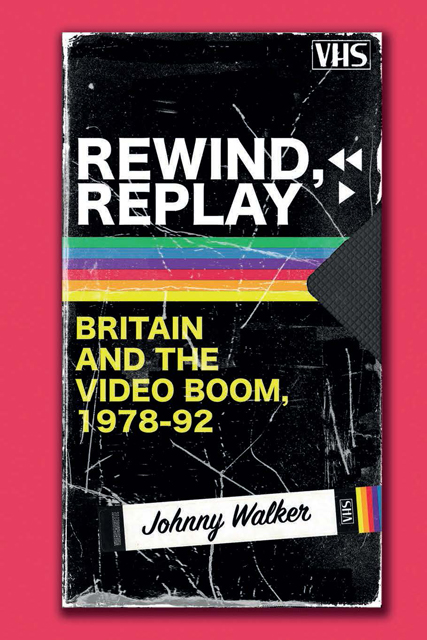Book contents
- Frontmatter
- Contents
- List of Figures
- Acknowledgements
- Introduction: Rewind, Replay
- 1 We’ve Got It Taped
- 2 Shrugging Off the Recession
- 3 Threats and Benefits
- 4 Regulation and Adaptation
- 5 Independent Spirit vs Corporate Muscle
- Conclusion: Video Legacies
- Select Bibliography
- Select Film/TV/Videography
- Select Periodicals
- Index
2 - Shrugging Off the Recession
Published online by Cambridge University Press: 18 November 2022
- Frontmatter
- Contents
- List of Figures
- Acknowledgements
- Introduction: Rewind, Replay
- 1 We’ve Got It Taped
- 2 Shrugging Off the Recession
- 3 Threats and Benefits
- 4 Regulation and Adaptation
- 5 Independent Spirit vs Corporate Muscle
- Conclusion: Video Legacies
- Select Bibliography
- Select Film/TV/Videography
- Select Periodicals
- Index
Summary
If, like me, you’re not quite in the upper echelons of the expandable-income bracket, there is an alternative to busting your bank balance every time you want to acquire a movie on video. Simply rent one for a few days.
Martin Hodder, ‘Tape rental – here's why it makes sense’, Video ReviewIn 1978, when Intervision established its mail order video club and what, ostensibly, was the first British video shop, Britain was on the verge of recession. Between mid-1979 and the beginning of 1981, ‘manufacturing output fell by 19.6 per cent’ and ‘23 per cent of all manufacturing jobs were lost’. At this time, ‘one worker in 10’ was ‘jobless’, while sales of consumer goods such as alcohol, cigarettes and cars were in decline. This period of recession also, conversely, marked the dawning of a new age of leisure industries (culminating in the opening of Europe's biggest shopping complex, the Metro Centre in Gateshead, Tyne and Wear, in 1987), during which video grew exponentially, with the market doubling in value between 1980 and 1981, and new video libraries – whether mail order companies or physical shops – began springing up to meet demand.
The growth of video clubs and shops and, by extension, the popularity of video as an entertainment medium, needs to be set alongside broader shifts in economic change fostered by the New Right in Britain during the 1980s. Writing in the US context, Frederick Wasser employs the term ‘harried leisure’ to explain the boom in popularity of video in the 1970s and 1980s, which, he suggests, was a consequence of ‘rising affluence’ amongst North Americans. Watching video, in other words, could fit around busy work schedules as more people, including a greater number of women, entered employment. ‘The VCR’, Wasser argues, ‘fit in with the new fragmented patterns of family life’.
In Britain the context was different. Home penetration of the VCR grew immeasurably despite the falling levels of employment among less well-off social groups. One reason cited for this is that, as more people were laid off work, severance money was used to acquire consumer electronics: an area of expenditure that, contra the cost of food and homebuying, had not risen in any drastic sense for a decade or so. As Julian Upton writes, Britons were well accustomed to renting consumer electronics or buying through hire-purchase agreements.
- Type
- Chapter
- Information
- Rewind, ReplayBritain and the Video Boom, 1978-1992, pp. 62 - 94Publisher: Edinburgh University PressPrint publication year: 2022



